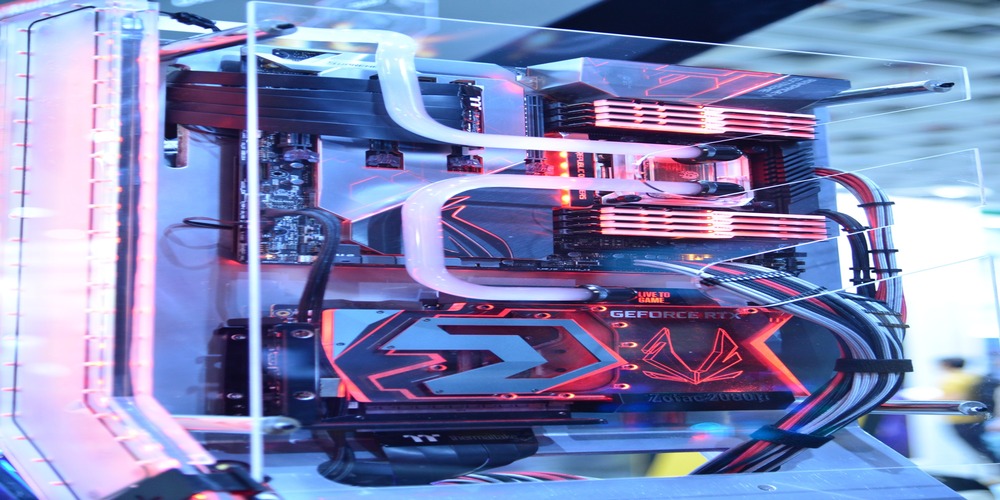As technology continues to advance at an unprecedented pace, the heat generated by high-performance machines has become a major challenge. Traditional methods like air cooling have proven insufficient, leaving engineers scrambling for new solutions.
Enter liquid cooled heat sinks: a game-changing technology that promises to revolutionize heat management. With their efficient heat dissipation, quiet operation, and compact size, liquid cooled heat sinks offer a range of benefits over traditional cooling methods.
As machines push the limits of what’s possible, liquid cooled heat sinks represent a vital tool in the pursuit of greater performance and efficiency. They are a game changer in the world of heat management and this post will explore why.
How Do Liquid Cooled Heat Sinks Work?
Liquid cooled heat sinks work by using a liquid, typically water, to transfer heat away from high-performance machines. The liquid is circulated through a series of channels within the heat sink, which is in direct contact with the heat source.
As the liquid absorbs the heat, it carries it away from the machine and towards a separate cooling system, typically a radiator or fan. The heat is then dissipated into the air or another coolant, allowing the liquid to cycle back through the system and absorb more heat.
This highly efficient process can remove much more heat than traditional air cooling methods. Additionally, a liquid cooled heat sink can be designed to fit into tight spaces, making it a versatile solution for a wide range of applications.
Liquid Cooled Heat Sinks vs. Ordinary Heat Sinks
Liquid cooled heat sinks offer several advantages over regular heat sinks. The following are some of these advantages:
Higher Heat Dissipation Efficiency
- Liquids have a high heat transfer coefficient compared to air or any other material.
- Liquids can absorb and transfer more heat more than air cooling methods.
Lower Operating Temperatures and Reduced Noise
- Liquid cooled heat sinks have lower operating temperatures compared to air cooling methods.
- Quieter operation due to the use of liquid cooling.
Flexibility in Machine Design
- Heat sinks cooled by liquid can be designed to fit in tighter spaces.
- Greater flexibility in machine design due to the smaller size of liquid cooled heat sinks.
Reduced Maintenance Requirements
- Liquid cooled heat sinks require less maintenance compared to air-cooled heat sinks.
- The system also has a longer lifespan and is less prone to downtime.
Applications of Liquid Cooled Heat Sinks
Liquid cooled heat sinks have become a holy grail in the world of CNC machines and heavy industrial machinery. These advanced cooling systems offer several benefits that traditional air-cooled heat sinks cannot match.
One of the biggest advantages of liquid cooled heat sinks is their ability to dissipate heat more efficiently, resulting in a longer lifespan for the equipment. This improved cooling capacity translates into higher productivity, increased uptime, and reduced maintenance costs.
Kingka, a leading manufacturer of liquid cooled heat sinks for CNC machines and other manufacturing equipment, provides innovative solutions that can help businesses optimize their manufacturing processes.
With liquid cold plate heat sinks, industrial machines can run at peak performance without the risk of overheating or failure, making them a smart choice for businesses looking to maximize efficiency and reduce downtime.
Conclusion
To conclude, liquid cooled heat sinks offer several advantages over traditional air-cooled heat sinks for heavy industrial machinery. By dissipating heat more efficiently, they can help extend the lifespan of equipment, increase uptime, and reduce maintenance costs.
This makes them a smart investment for businesses looking to optimize their manufacturing processes. As technology advances, liquid cooled heat sinks are sure to play an increasingly important role in the world of CNC machines and heavy industrial machinery.
